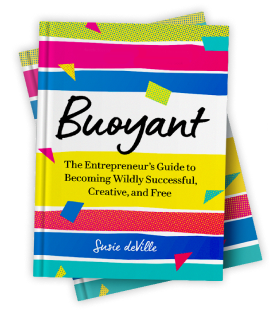The test of a first-rate intelligence is the ability to hold two opposed ideas in mind at the same time and still retain the ability to function. ~ F. Scott Fitzgerald
If a billionaire walked up to you on the street and said that he knew the secret to success, what would you guess his secret to be? Would you think the answer to be along the lines of hard work, dedication to craft, knowing your market, providing exceptional service, or adding new value to customers? Something else?
According to a recent Inc. Magazine article, American billionaire investor, Ray Dalio, has revealed in his book, Principles, that the key to success is being radically open-minded.
Surprised?
Radically open-minded. I would imagine that you (like the majority of us) would consider yourself to be in that category, right? You’re a reasonable person after all. You are willing to compromise. You are pretty easy going.
Let’s dig a bit deeper:
Are you willing to have your ideas openly and strongly challenged?
Are you willing to be wrong?
Are you focused on understanding others versus your being understood?
Do you take an energetic stance of expert (where there are few, new possibilities in your thinking), or as a leader with a Beginner’s Mind (where one greets challenges with curiosity and there are endless possibilities for solving each)?
Most of us have not been trained in this kind of radically open-minded thinking. Rather, we are more apt to be skilled in taking a position and arguing for same with staunch devotion and passion. To waver, we are often taught, is to blink (lose).
Unlearning our outdated training is certainly doable if your willingness is present. Shifting into a truly, radically open mind feels like freedom—all the oxygen comes back into the room.
Interested in taking the billionaire’s advice to the next level?
What if we were to take Ray Dalio’s radically open-minded approach and marry it with what Roger Martin calls integrative thinking?
In his book, The Opposable Mind: How Successful Leaders Win Through Integrative Thinking, Martin defines integrative thinking as “the ability to face constructively the tension of opposing ideas and, instead of choosing one at the expense of the other, generate a creative resolution of the tension in the form of a new idea that contains elements of the opposing ideas, but is superior to each.”

That is, if you were to take your old Pros/Cons list, for example, and instead of seeing which column is longer to drive your decision, Martin suggests that we take parts from each opposing column to form a new, previously-unseen (and better) solution.
As entrepreneurs and leaders, we can transform the tension of opposing ideas and positions into creativity. We can ignite our ability to see a multitude of possibilities and be excited by complex challenges. When others see the world differently than we, our curiosity and ability to sit in the tension and mine it can render untold innovation and wealth.










